M. Thomas Apple's Blog, page 18
July 15, 2023
Dr Strangelove adaptation in the works
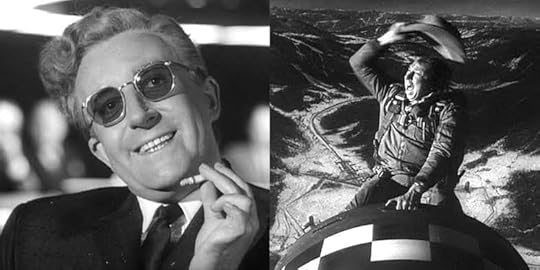 Check out this screen rant page if you have no idea what I’m talking about…
Check out this screen rant page if you have no idea what I’m talking about…Or, how I learned to stop worrying and love the bomb…
“During the adaptation, Stanley ran into a wall: it was impossible to make a successful film about the end of mankind since nobody, himself included, would want to see it. The answer was satire…”
https://www.theguardian.com/film/2023/jul/15/stanley-kubrick-dr-strangelove-stage-adaptation-armando-iannucci
Dr. Strangelove itself was an adaptation of a novel. So I wonder how adapting an adaptation to the stage will work.
How many new lines will they allow? Peter Sellers basically ad libbed everything and Kubrick rewrote the script to match the ad libs.
Probably including this one:

(Btw I hadn’t realized the film won a Hugo Award…along with many other awards…which goes to show how little we actually need Hollywood studios to get great stories in the end…)
July 11, 2023
The future looks like…
What are you most excited about for the future?
I look forward to seeing whether the future looks more like WALL-E…
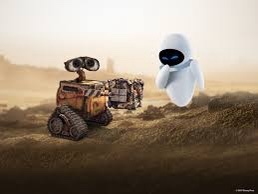
…or Star Trek…
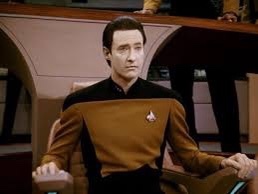
…or maybe some combination thereof…
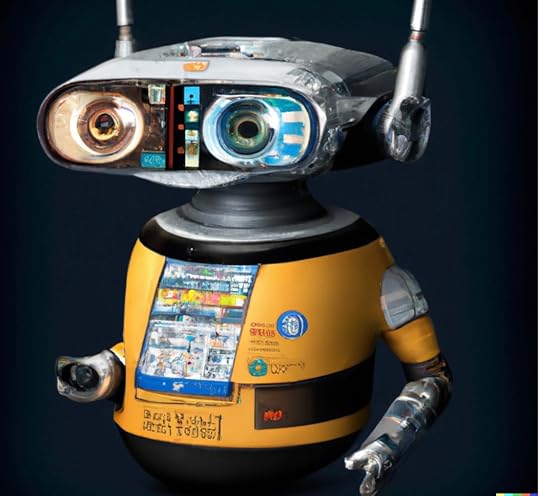
July 7, 2023
Robots say they won’t steal jobs or rebel
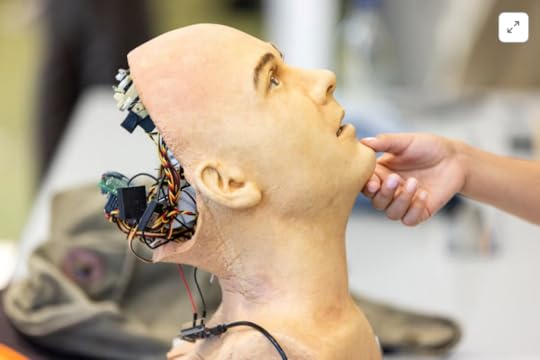 Meet Sophia, one of nine robots at the first “human-AI forum” in Switzerland.
Meet Sophia, one of nine robots at the first “human-AI forum” in Switzerland.
Ai-Da, a robot artist that can paint portraits, echoed the words of author Yuval Noah Harari who called for more regulation during the event where new AI rules were discussed.
“Many prominent voices in the world of AI are suggesting some forms of AI should be regulated and I agree,” it said.
But Desdemona, a rock star robot singer in the band Jam Galaxy with purple hair and sequins, was more defiant.
“I don’t believe in limitations, only opportunities,” it said, to nervous laughter. “Let’s explore the possibilities of the universe and make this world our playground.”
https://www.reuters.com/technology/robots-say-they-wont-steal-jobs-rebel-against-humans-2023-07-07/
Synthetic human embryos – yeah, now *that’s* not controversial…
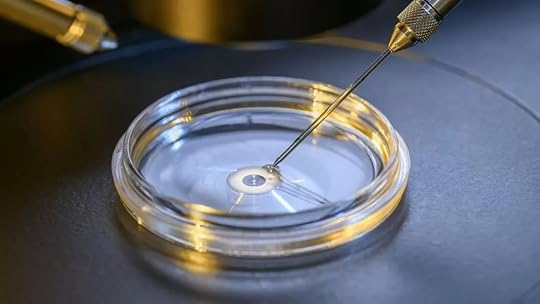
The synthetic embryos – only days or weeks old – could help researchers study the earliest stages of human development and explain pregnancy loss.
Nobody is currently suggesting growing them into a baby.
https://www.bbc.com/news/health-65914934
Well, that’s a relief….
This is the first time that has been achieved using human material. Although, they are not truly “synthetic”, as the starting material was cells cultured from a traditional embryo in the laboratory.
Great, but…
She has already developed synthetic mouse embryos with evidence of a developing brain and beating heart.
Come on, BBC. I think you can see where this is going…
Meanwhile, scientists in China have implanted synthetic monkey embryos into female monkeys – although, all the pregnancies failed.
Yep. Straight to the monkey house.
Seriously, did scientists actually think this was not going to cause a whole lot of people to get upset all over again?
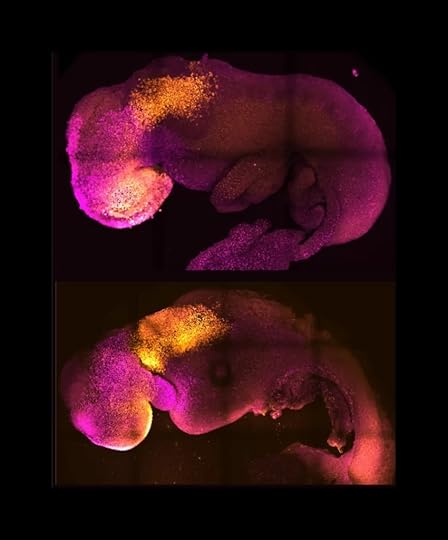 Natural embryo (top), synthetic embryo (bottom). They look pretty similar…
Natural embryo (top), synthetic embryo (bottom). They look pretty similar…This may indeed be a good way to study infertility causes and how embryos develop, but even the possibility of creating an embryo from a stem cell should have set off warning bells. 14-day limit or not, somebody’s going to get really tempted to do something else with them…
I’m thinking up all sorts of SciFi stories from this…
July 5, 2023
And no, I have no idea why Jetpack/WordPress did that
Post once, get them twice!
No idea why my post about UV appeared twice.
Maybe it’s something to do with my connection speed on the train home…
July 4, 2023
Bringer of Life, Chapter 40: The Sundering Begins
Unbelievably, it has been over four months since I continued the story of Clarissa Kragen and the crew of the Artemis.
We left former Sagittarius colleague and now arch-rival Gennaji in an emotional encounter, far away from Riss and the Mars colonies — where Riss is about to find out what has been happening to their captain and mentor Sergey Bardish…
Cooper had just finished his lunch and was placing the tray in the recycle bin when he felt someone grab his shoulder. He turned around.
Close. So close.
“Riss. Where’s Riss?”
“Calm down, Sanvi. What’s up?”
“Just…find Riss. Hurry.”
Sanvi let go and brushed past the geist. He sighed and watched her continue through the corridor between the Central African Union and Far East Asian Consortium domed settlements. It was just as well they’d managed to print up a midway station between the two. Part of Riss’s plan to keep conflict to a minimum. Each way station had rec facilities, including shared eating areas and scheduled festival and cultural events. They were proving popular with settlers of all persuasions, but at times it seemed a bit too crowded for his liking. Still, no major disagreements.
So far.
Cooper shook his head. Amazing how much they’d accomplished in just over four months, despite the disagreements and yet another new group of refugees slash colonists from the UA. Martin had “forgotten” to tell them of the arriving ships until nearly the last moment, and it took round the clock efforts to prepare living quarters.
Fortunately, the Artemis crew was able to rapidly speed up water production for electricity. Gravity generators were in short supply, but given time Cooper figured they could manage to make enough for all. Even that odd architect-come-water engineer-slash-faction liaison seemed overly pleased with himself. After all, Riss had agreed to use several of the man’s lighting designs in the settler pods as well as in the connecting corridors. Cooper sensed something was a bit off between the two of them, though. Especially whenever Sanvi was around. But if Weng were troubled, he hid it well.
He wondered about his own relationship with Sanvi. And with Enoch and Riss, for that matter. He had never felt at home aboard the Artemis. Before they found the rock, he even contemplated abandoning the ship at a refuel base. What might have happened had they stopped at Zedra as originally planned? Who knows. He might have found himself floating around one of the Jovian moons. Giant gas pumps in space, miners liked to call them.
No, staying with the Artemis crew had been the right decision. He felt close to them all, closer than ever before. Not as close as he might have wanted with Sanvi. Much closer to Enoch than he ever thought possible. He almost felt as if they were brothers from another mother.
Only Martin appeared obviously uncomfortable with the new paradigm. Downright uncooperative at times, truth be told. Not too surprising, Cooper thought. There was no real need for an “Overseer” after the severed quantum teleport pad. Once Hamels completed the work on the long distance communications array, no signals would go in or out without their knowledge.
So why hadn’t Martin put up more of a fuss?
Cooper touched his wrist. “Enoch. You busy?”
There was a brief silence. Then a crashing noise and a yelp of pain. “Oh, hey, no, not busy. Why would I be busy?”
“Man, are you still working on that coupling unit in the Receiving Station lobby?”
“Look, you’re the scientist, right? I’m just a gamer with the eyes good enough to see what the problem is with all this electronic crap. Whaddya want from me?”
“You’d better get over here. Something’s up with Riss.”
“Riss?”
Silence.
“I’ll be right there.”
“Better make it quick. I have a strange feeling she may need us.”
“Roger. You might wanna go track down that boyfriend of hers.”
“Fiancé. Ex.”
“Whatever. See you in a few minutes.”
Cooper flicked his wrist to shut the connection. Flicked it the opposite direction to open a new one.
“Mr. Weng, this is Brady Cooper. Can I talk?”
No answer.
Cooper closed the 3D projection panel and strode off towards the hydroponics, thinking.
The architect was a little quirky, but Weng had done good by him. Without the Weng’s tech savvy, they’d never have gotten the use of wrist comms back. And thanks to Weng’s regolith reclamation teams, more and more ice and regolith being converted each day meant more and more hydrogen fuel for electrical production. At least until they could figure out how to hook up their new “nuclear power plant” with the converted bomb as fuel cell.
The problem was convincing the settlers to use the water they created.
Not “created,” he reminded himself, opening the door to the main hydroponics chamber. Transformed. Rearranged. From dust to water, then back to dust again, in the end.
But many—just shy of a third, by his estimation—refused to drink any of it. Even insisted on separate hydroponic labs, segregated according to water source. They even seemed to want completely separate pods from those who had begun to call themselves “Awakened.”
He supposed he couldn’t blame settlers who were terrified of the unknown, of changes. Cooper just hoped it wouldn’t turn into something worse. His family had seen the results of such segregation firsthand. It wouldn’t be pleasant.
“Dr. Huynh,” he called out. “I need to speak to Sam. It’s urgent.”
A slightly-build scientist stuck her head out from behind a long aluminum wall of hanging plants. “He’s not here, ah…”
“Cooper. Brady Cooper, Artemis astrogeologist.”
“Ah, yes, the pirate geist. Well, he’s not here.”
“We’re not pirates,” Cooper said under his breath.
“Sorry, I didn’t catch that.”
“Never mind. Do you have any idea where I could get in touch with him? He’s not answering any calls.”
“Sorry, no idea. Have you called the Overseer’s office?”
Cooper frowned. Martin. The man had barely lifted a finger to help with distribution of food stuffs and medical supplies the past two weeks. But he had assisted in moving settlers into new pods. Now Weng was AWOL. Something funny was going on.
He thanked the botanist and ducked out into the corridor. He touched his wrist again. “Riss, this is Coop.”
No response. He tried a second time. All quiet.
If he were Covenantless, he would’ve swore. It was tempting.
He began walking, briskly. At least he and Enoch could go find—
The wrist com spoke. “Coop, I need you here. Now.”
“Riss! Where?”
“The Overseer’s office. It’s open.”
“What’s—“
“No talking. We may be monitored.”
Monitored? By whom?
Then he knew. This was bad. Very bad.
He wasted no time. Halfway to the Overseer’s office, a 3D notification popped up from his wrist. Enoch. Cooper swiped in the air and sent an emoji of the three monkeys. Monkey see, monkey hear, monkey do (no evil). He hoped the navigator would get the meaning. Then an image of a robot bowing repeatedly to the UN flag. Cut transmission.
The corridor ahead was packed with settlers from various factions. Yet strangely silent, almost as if they were communing with each other. Cooper heard quiet murmurs as he edged through the crowd. No one resisted. He spotted a Central African man in a traditional boubou, who placed a hand on his heart and then extended it outward in salute upon recognizing the geist. Cooper returned the gesture, mimicking as best he could.
So many customs. So many beliefs. He thought of the initial reception after they had landed. The endless bickering. How would they ever make this work?
He reached the office, which was even quieter than the corridor, if that were possible. The door was open. At the back of the room, standing arms crossed behind the Overseer’s antique desk, Riss stared down at a computer screen. Sanvi stood beside her, a look of concern on her face. She looked up as Cooper entered the room and nodded at him.
“Riss,” he said. He swallowed. He couldn’t help feeling concerned, himself, but about Sanvi. She appeared on the verge of tears. As if feeling for two. He approached the desk, stopped before he reached them.
“I was helping Hamels with the second group of settlers from the Arab Republics when Sanvi came rushing in with the news,” Riss said.
The news? Cooper thought. Suddenly came the awkwardness of not knowing what to do with his hands. He looked at them, then at Riss and Sanvi.
Where was Weng? And Martin? They should have been present. The absence of the two mainly responsible for running the colonies before the arrival of the Artemis was disconcerting.
He heard noise behind him in the corridor. Hurried footsteps, and Enoch breezed in. He nearly fell trying to stop. Cooper reached out a hand for support.
“Damn exosuit!” the navigator swore, accepting Cooper’s help.
“Enoch. Good timing.” Riss nodded at Sanvi. “Let’s hear it. Broadcast colonies-wide.”
Sanvi touched the screen.
“This is a pre-recorded message,” came the voice.
Cooper recognized it from his exoplanetary history course in Boulder. Riss did not change expression.
“I am Bardish. Perhaps you know me.”
In fact, Riss looked at peace for the first time since he’d known her.
“If you are watching this, then I am gone.”
Utter calm, as if she knew. Had known.
“I do not know the nature of my end, but I hope that it was in the service of my fellow hunters, and not in that of any government or decision-making body of conniving politicians.”
Sanvi seemed to relax as well. Cooper could see her aura. Felt her mindfulness.
“I have made many mistakes in my life. If there is one that I deeply regret, it is that I was unable to prevent my crew, my Sagittarius crew, from becoming enemies of each other.”
Cooper could swear that the old man was in the room with them. The voice was inside his head. Everywhere. As if the universe itself were speaking.
“Lena was a dear friend. A comrade. A sister. I understood why the court case had to happen, but Clarissa Kragen was not to blame for the accident. I was.”
If Riss were startled by this admission, she did not show it. If anything, she seemed all the more confident to Cooper.
“As her mentor and father, it was my responsibility to train her. She took this responsibility on herself, and for that I am both proud and ashamed. The accident happened, and nothing can change that fact or the fact that I should have taken the stand instead of Clarissa.”
Court case? Cooper suddenly understood.
The feeling of guilt. Emptiness. Self-recrimination. Utter anguish.
Why do bad things happen to good people?
Because they do. No other reason is so difficult to accept, and so painful to admit.
“My final wish in this life is this. Gennaji and Ildico, forgive each other. Forgive Clarissa. Clarissa, dytyna, you must not be hard on yourself. We all make mistakes. Look to your crewmates and your friends. You are their strength, as they are yours.”
It was everywhere. The aura. Cooper could sense it even in the corridor now. The emotion. The power. The unity.
“As for myself, all I can say is, I’m sorry. To all of you. I have lived my life to the best of my ability. To be independent. As I hope you all will. I only wish you will not repeat my mistakes.”
The voice paused, then laughed.
“I’m sure you will make many new mistakes of your own. Learn from them, as I have.”
Cooper felt a sudden rush of emotion. A strange tingling sensation. As if he knew this man. Like a father. Like the father he could no longer remember. The one he always wanted to have. Memories not his own flooded his mind. Anger, sadness, warmth, compassion. Pride. Acceptance.
“You are not children, and I am sorry if I so treated you. I have none of my own, you see. I only want you to think of me as who I am, who I was. And so I leave you now.”
The voice stopped.
Then as if from a far off distance, the last two sentences echoed. Cooper was sure he had heard them already. Somewhere, some time.
“Be happy. Be free.”
Sanvi touched the screen again. “This message was sent from Ceres to us about half a hour ago,” she said. “They did not say when or where they received it, but I have verified its authenticity.”
“So he is gone,” Enoch murmured. He closed his eyes and sighed. “What now?”
“Now,” Riss said, “we go back to work.”
Cooper cleared his throat. “Riss, I can’t find Weng.”
Riss nodded.
“Or Martin.”
“Yes, I thought something might happen. Particularly with Martin.”
Riss turned to Sanvi.
“Get in touch with Ceres. Thank them for the message and warn them that they might have to protect their mining stations at some point over the next few weeks.”
“Uh, Riss,” Enoch said, “About Martin and Weng?”
She smiled and shook her head.
“Martin is—was—the Martian Colonies Overseer for a long time. Long enough to have made many contacts to help him out of a tight spot.”
“And that tight spot is?”
“Us. He obviously never intended to cooperate from the very start. He was only hoping to find a weak point to exploit, or to ingratiate himself with us, so that he would eventually regain power in some form.”
Cooper nodded. “Either openly or behind the scenes.”
“Yes, behind the scenes,” Riss repeated. “Weng, likewise.”
They were silent. Cooper didn’t want to think about how Riss might be feeling at that moment. He could still sense the aura of those in the corridor, waiting for them to emerge with an announcement or statement of some sort. There must be hundreds more, waiting, in colonies across the planet.
Even without Weng, he thought, they could still make this work. Somehow. The architect was the primary, but not sole, author of the Declaration of the United Mars Colonies. And they still had his notes for the not yet fully completed Constitution.
Now, finally, the last cord, the last, most important cord to Earth had been cut. The settlers still needed training, but Riss had expressed confidence the United Mars Colonies could stand alone—colonies no longer, but a nation-planet in its own right. It was time to declare the Sundering.
No doubt Martin had been annoyed by the lack of a central governor figure in their new proposed scheme. A central governing committee, yes, with a revolving head position. But not permanent power vested in a single person.
And Cooper was now sure that Riss had plans for something else in addition to a central committee. He sensed it, even without trying to merge. The feeling lay right at the surface of her thoughts.
Sanvi had provided the blueprint, he was almost certain.
A new religion. Of a sort. And, he realized, he was a part of it, too. The thought once would have made him uncomfortable. Now, he wasn’t sure what to think of it. Except that perhaps it had been inevitable. Even destiny.
“Should we call for the Sergeant Major first?” he asked.
“Already here, geist,” came a voice from just outside the door.
Hamels gave Riss a cursory salute. Riss smiled and gestured. “Shall we?”
The Artemis crew—former Artemis crew, Cooper now realized—had trained nearly three-quarters of afflicted settlers how to control their visions and calm their emotional reactions. Some were clearly thinking of the crew as the de facto leaders of the United Mars Colonies, but Riss has already expressed her reluctance to take up the leadership mantle.
At least not until there was some sort of legal framework in place, Cooper thought. There was no way a true democracy could work, in his opinion. Too many factions, too many agendas. Too many disagreements would destroy them, on a planet with no breathable air, little available arable land outside the very basic beginnings of terraforming. They needed at least two or three more ditrium-laden asteroids to make a reasonable dent in the high CO2 levels and nearly non-existent nitrogen levels. Once things settled down, they’d have to negotiate with the Ceres Mining Council. Easier said than done, but the Seven Sisters had promised to be allies.
And Coop knew that his proposal to use Phobos to create a stable magnetic field around the planet, while theoretically sound and well-known for years, would prove difficult to pull off.
But nothing was impossible. Not for the new Martians, once they learned to work together.
Coop pondered this.
When had he started considering himself a Martian?
At any rate, one of the Artemis crew still had to make an announcement to the colonists gathered outside the Martian Secretariat office. Waiting in other areas throughout the joined colony habitats. Waiting for them.
Waiting for their Declaration.
Next: Bringer of Light, Chapter 41: Weng’s decision
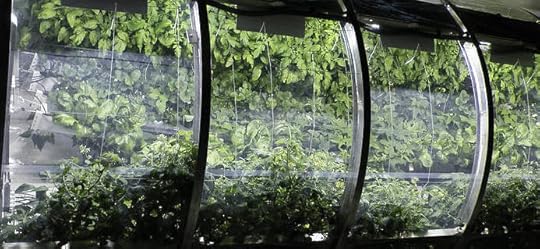
July 3, 2023
Another James Webb discovery: UV actually helps life
 Images of the Orion Nebula, c/o ESA and NASA (it’s complicated…)
Images of the Orion Nebula, c/o ESA and NASA (it’s complicated…)
For the first time ever, a team of international scientists detected a carbon compound known as methyl cation (pronounced cat-eye-on), or CH3+, in d203-506. CH3+ is significant for understanding how life began on Earth — and how it might develop elsewhere.
https://www.astronomy.com/science/jwst-spots-a-molecule-vital-to-life-in-protoplanetary-disk/
Ultraviolet radiation (UV) is known for destroying complex carbon-based molecules. But could it also provide the energy for them to exist?
In search of dark energy and dark matter

A European-built orbital satellite was launched into space on Saturday from Florida on a mission to shed new light on dark energy and dark matter, the mysterious cosmic forces scientists say account for 95% of the known universe.
https://www.theguardian.com/science/2023/jul/01/euclid-telescope-lifts-off-in-search-of-the-secrets-of-dark-universe
Like the James Webb telescope, the Euclid will be positioned in a LaGrange point (L2, in this case), rather than in high Earth orbit.
If all goes well.
It’s interesting that the Guardian article says the telescope was “designed and built entirely by Esa,” although NASA supplied parts and its launching pad was made available and the telescope was launched using a SpaceX rocket. And ESA consists of nearly 2000 scientists from the US, Canada, and Japan as well as various European countries.
It’s a joint project. That’s how science should work in the first place.
July 2, 2023
Phosphorus on Enceladus boosts chances for life?
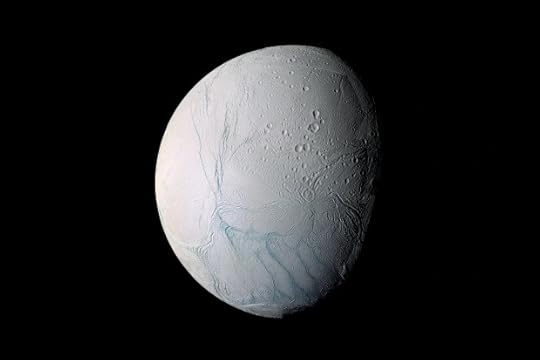
According to legend, the ancient giant Enceladus vents sulfur from his tomb. According to data, Saturn’s tiny moon Enceladus vents more than that.
https://www.astronomy.com/science/phosphate-find-on-enceladus-boosts-chances-for-life/
Scientists have suspected for a long time that this tiny moon of Saturn may be the best place in our solar system to look for life.
Now they have confirmed evidence of all six crucial elements necessary for life to exist (life as we know it, anyway): carbon (C), hydrogen (H), nitrogen (N), oxygen (O), phosphorus (P), and sulphur (S). If present as a phosphate, essential for DNA and RNA to exist, the discovery of phosphorus on the 310-mile-wide Enceladus may indicate life of sort sort, perhaps at a microscopic level beneath the icy surface.
One guess is that the oceans of Enceladus have at least 100 times more phosphorus than the Earth’s oceans. That would make for quite the carbonated fizzy pop. Methane has already been seen coming out out of various “ice geysers” (a.k.a. cryovolcanoes). Since methane results from rotten organic material, there logically should be something alive out there.
Now we just have to get back out there and figure out a way to find them.

July 1, 2023
How I learned how NOT to carry a shoulder bag to work
Have you ever had surgery? What for?
Yeah, minor surgery. On March 3, 2020, I had a benign tumor the size of a gum ball removed from my left shoulder.
It had been created by repeated rubbing of my shoulder bag strap on sweaty skin. Or rather on sweaty shirt over sweaty skin. I walk half an hour back and forth the train station to my workplace each morning and evening, and the summers in Kyoto are hot hot hot.
So there I was lying on a surgeon’s bed, getting my shoulder skin snipped into three pieces and pried open. My blood pressure shot up to 190 at one point. The surgeons told me to relax.
Uh. Yeah. They didn’t tell me how close the tumor was to a major artery, but I could make an educated guess.
There was a cloth screen between my face and my shoulder so that I couldn’t see what they were doing. And of course they had numbed the entire area and I couldn’t move my left arm at all.
But it was an unpleasant experience. No pain, but I could of course still hear the clip clip clipping of scissors on skin. And I have an imagination.
(Fwiw I have written a short story based on getting my wisdom teeth taken out—also with local rather than general anesthesia—though I didn’t include the factoid that my root tips shot across the room like tiny cannonballs and were never found again).
Fortunately, the surgery was successful— they even showed me the tumor (it looked like a tiny blancmange, and now you’ll have that image in your mind next time you eat one). They even asked me if if wanted to keep it (um, no thanks).
And afterwards the scar was barely visible, so good a job they did with the stitches.
Two days after the surgery, we went into lockdown and had to wear masks everywhere.
Talk about good timing.



